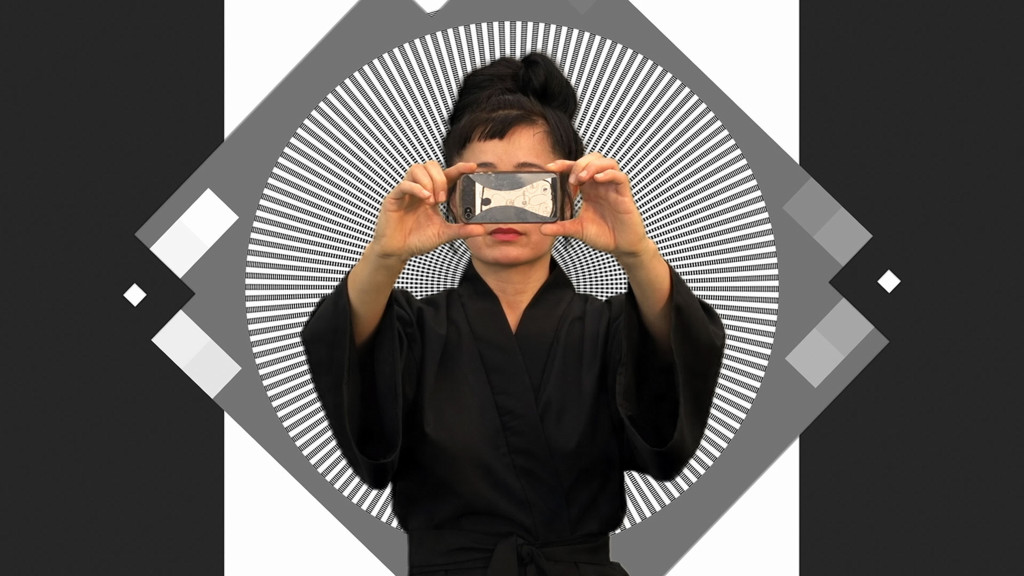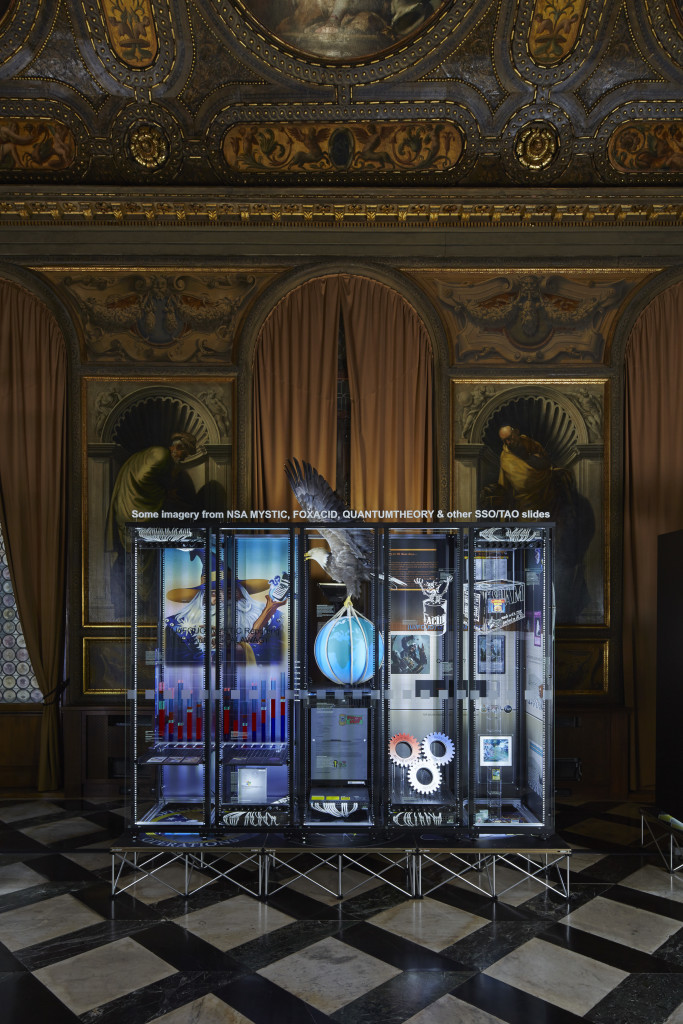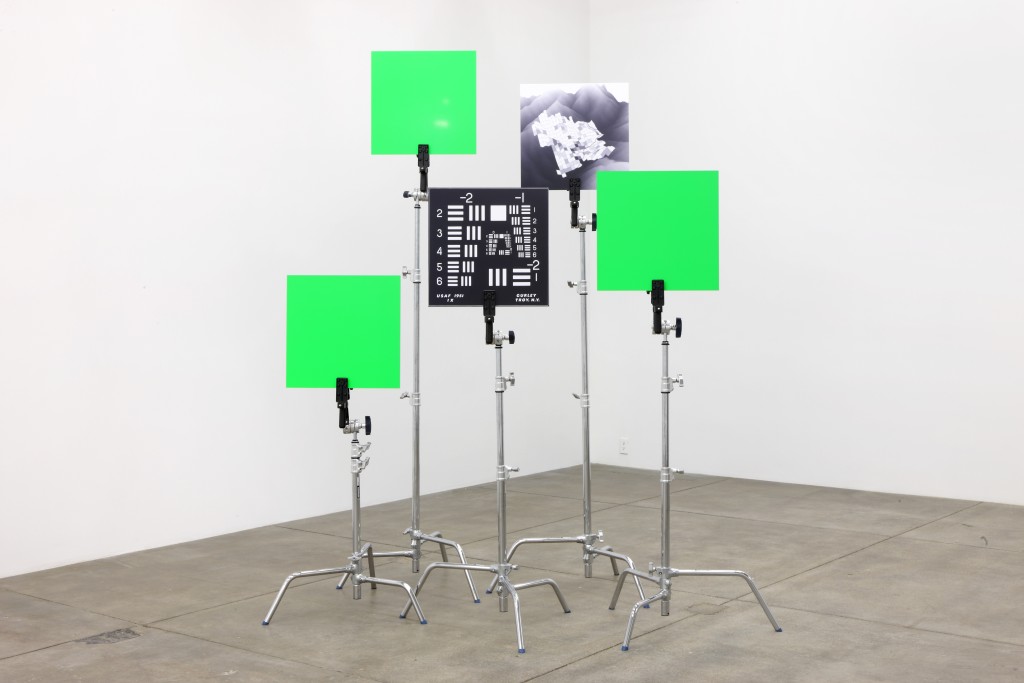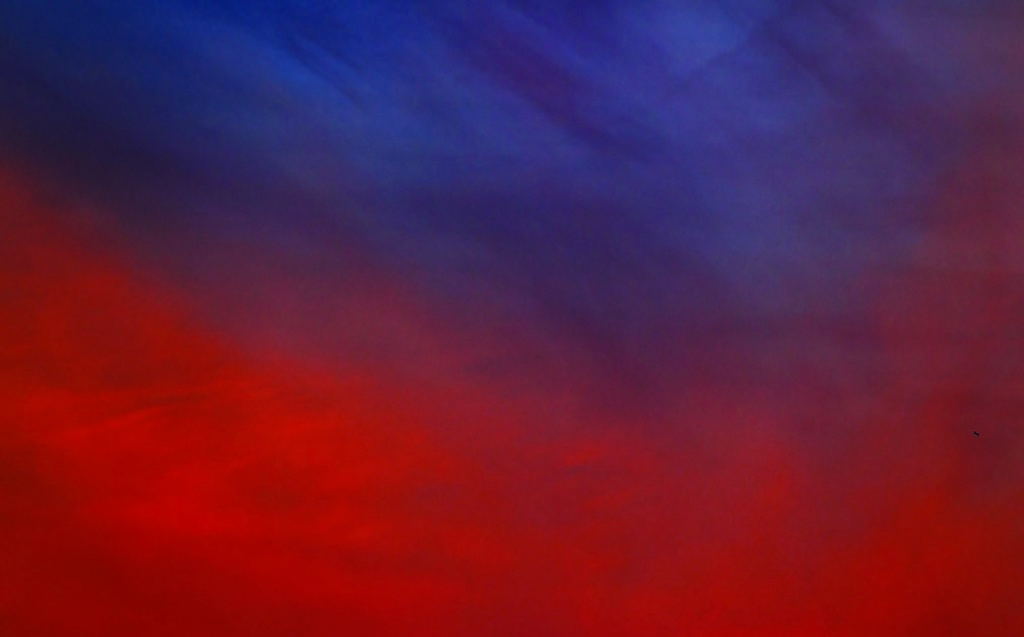
The resurgence of camouflage: camo is trending, again. As one fashion director put it, “camo is the trick birthday candle of patterns; you think it’s gone out, it starts back up again.”1 Within a society of complete visuality and visibility, it has become more and more important to consider the ramifications of camo as a militarized pattern growing in fashionable popularity. Beyond thinking of camouflage as a tactical or sartorial operation, the twenty-first century begs us to look through camo toward its underlying principles. Developed a century ago by a group of conscripted artists in Europe, military camouflage existed as a countermeasure to the new intelligence technology that had begun to patrol the sky: aerial photography. To be visible to the camera meant opening yourself to attack, so artists, being specially equipped to think about the relationships between objects and images, were tasked with erasing the visual boundaries between thing and environment. To be clear, this was a battle of images, a struggle to flatten and transform the material of warfare into photographic nothingness for the cameras overhead. Artists were there in 1915 at the birth of camouflage, and in 2015, they remain important public thinkers on the dangers of being visible to the machine eyes of corporations and the state.

Where the vulnerability of being visible was once a battlefield concern in 1915, the defenselessness of being seen has now metastasized; corporatized social media and hyper-networked state surveillance have transformed state visibility into a pervasive civilian concern. Berlin-based Hito Steyerl is one of the most significant artists working in this vein today. Across extensive videos, lectures, and essays, Steyerl considers the perils of being seeable, but also the opportunities for resistance in a world of total visibility. Her 2013 video installation, How Not To Be Seen: A Fucking Didactic Educational .MOV File, provides an initial step into this territory in seven short “lessons” for escaping visibility, including “How to Make Something Invisible for a Camera” and “How to Become Invisible by Merging into a World Made of Pictures.” These lessons revolve around an understanding that the world is already completely consumed by the photographic image, and that the state operates on the level of representability. For Steyerl, the notion of image resolution becomes a crucial analytical tool, because as resolution in an image increases, the space in which to hide––its noise––diminishes. “To become invisible,” a text-to-speech avatar intones in a robotic accent, “one has to become smaller or equal to one pixel.”
Escape is only possible by burrowing deep down into the pixelated noise.
Within this trajectory, New Zealand-born and Berlin-based artist Simon Denny similarly embraces a different kind of noise within his sculptural practice—one with equally vast implications in the world of networked power. Denny creates object installations that pinpoint the juncture of consumer electronics marketing and geopolitical representability. Joining Steyerl, who is representing Germany, and exhibiting now for New Zealand at the 2015 Venice Biennale, Denny’s multipart installation Secret Power features server rack vitrines filled with the kind of visual trash one might expect in the clip art folder of an overeager corporate consultant. In fact, the material is quoted directly from internal Powerpoint slides and other bureaucratic material of the National Security Agency, as well as other global intelligence actors, available for artistic interpretation thanks to the leaks of Edward Snowden.
Denny’s practice here makes for an anti-camouflage, a revelation of the banality that informs the visual organization of geopolitical action. In parallel to this work, Judith Butler has noted that the field of state visuality is highly controlled and regulated by state permission, “constituted fundamentally by what is cast out and maintained outside the frame.”2 Ultimately the secrecy of being outside the public frame is what gives this imagery its operational power; under the blaring LEDs of his presentation, Denny underscores both the goofiness and the real effectiveness of the NSA graphics, their cartoony diagrams becoming all the more chilling.

The relationship between visibility, intelligence, and violence is likewise at the core of American artist Trevor Paglen’s practice. Using pictorial codes that have informed past notions of beauty in American art—including sublime landscapes, photography of the West, American modernism and Abstract Expressionism—Paglen channels attention through his images toward the invisible pathways of the security state. His ongoing photo series, Untitled (Drones), embodies this ethos. The series is made of sumptuous pastel skyscapes, tinged with a feeling of pre-packaged nostalgia and prettiness. Yet the works bear titles like Untitled (Predator Drone) and Reaper in the Sun, giving the viewer pause to inspect more closely. Each picture contains a tiny black speck––a drone flying at the far reaches of the visible––that mars the beautiful image and flips the nostalgia into a representation of how secret and pseudo-secret state programs evade proper visualization.
Where Hito Steyerl valorizes the poor image as a potential “third space” for the global citizen to recoup power, Paglen’s high gloss, high-resolution production of rich images acts as a demand for daylight in state activity. The preparation and research that lead to Paglen’s images, including deep dives into public records, Freedom of Information Act requests, and massive online databases, are decidedly anti-visual; the process is boring in its onslaught of data and paperwork wending through legalistic labyrinths. Paglen makes use of a truth observed by David Foster Wallace, that “abstruse dullness is actually a much more effective shield than is secrecy. For the great disadvantage of secrecy is that it’s interesting.”3 By inserting the abstrusely dull into the visual coordinates of the Beautiful American Image, Paglen allows the electricity to flow both ways: the contemporary clandestine is made visible and made visibly interesting, while at the same time, there is a kind of historical critique of the Beautiful American Image itself. We see the ideologies of power––Manifest Destiny, American colonialism, Cold War individualism and so on––that informed their production in the first place.

From the beginning, human camouflage––distinguished from animal camouflage in its correspondence to technological imaging––revolves around the relationship between image and object. Roger Caillois, a sociologist running in the Surrealist circles of 1930s Paris, declared camouflage a “photography on the level of the object,” presaging the increasing transformation of life into an image.4 This transformation is central to the work of Hito Styeral, Simon Denny, Trevor Paglen and a host of other politically engaged artists working today. We are in a world where images cross back and forth across the screen, suffering new thwacks and bruises each time they emerge and recede. “This is why,” Steyerl said in a recent talk, “I think the reality we live in consists of the wreckage of images, of half-destroyed images littering our reality.”5 Living in this contemporary condition, it is important to remember some recent words by cultural critic Ayesha Siddiqi: “Visibility in a surveillance state is not power.”6
- Jake Gallagher. “Why Men Can’t Stop Buying Camouflage Prints.” The Wall Street Journal. 1 Jan. 2015. Web. 20 Jul. 2015.
- Judith Butler. “Torture and Ethics of Photography.” Observant States: Geopolitics and Visual Culture, ed. Fraser McDonald, Rachel Hughes, and Klaus Dodds. (New York: IB Tauris&Co. Ltd., 2010), 43.
- David Foster Wallace. The Pale King (New York: Little, Brown and Company, 2011), 83.
- Roger Caillois. “Mimesis and Legendary Psychasthenia,” October, Vol. 31 (Winter, 1984): 17-32 (first published in Minotaur, vol. 7, 1935), 23.
- Hito Steyerl. “Photography and Political Agency?” Conference proceedings, “The Photographic Universe II,” April 10, 2013. The New School, New York.
- Ayesha Siddiqi. Conference proceedings, “Superscript,” May 29, 2015. The Walker Art Center, Minneapolis.